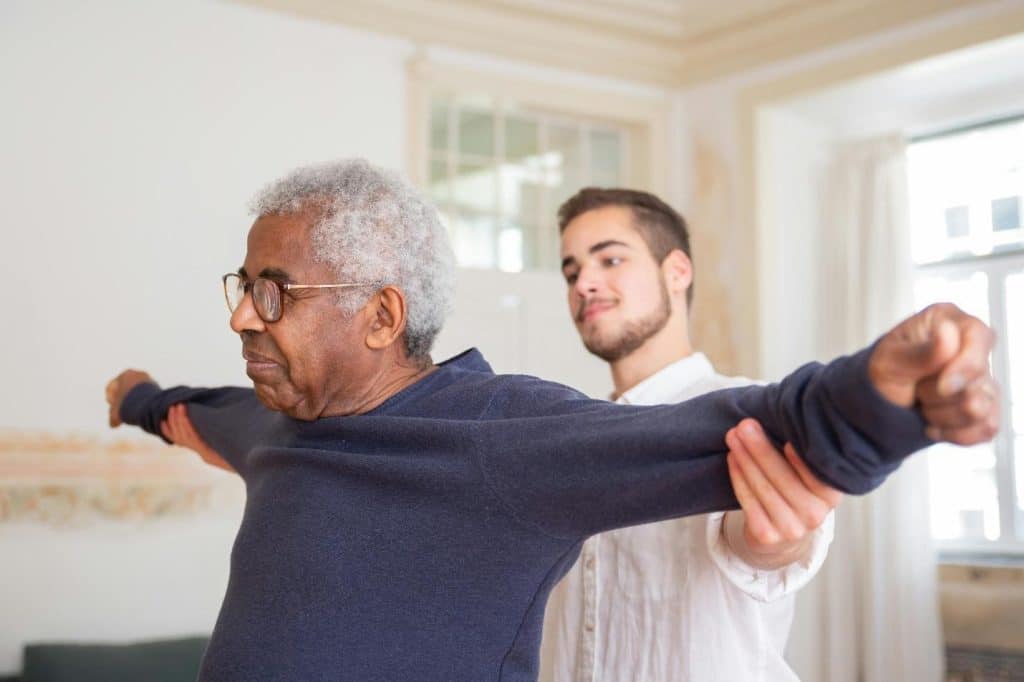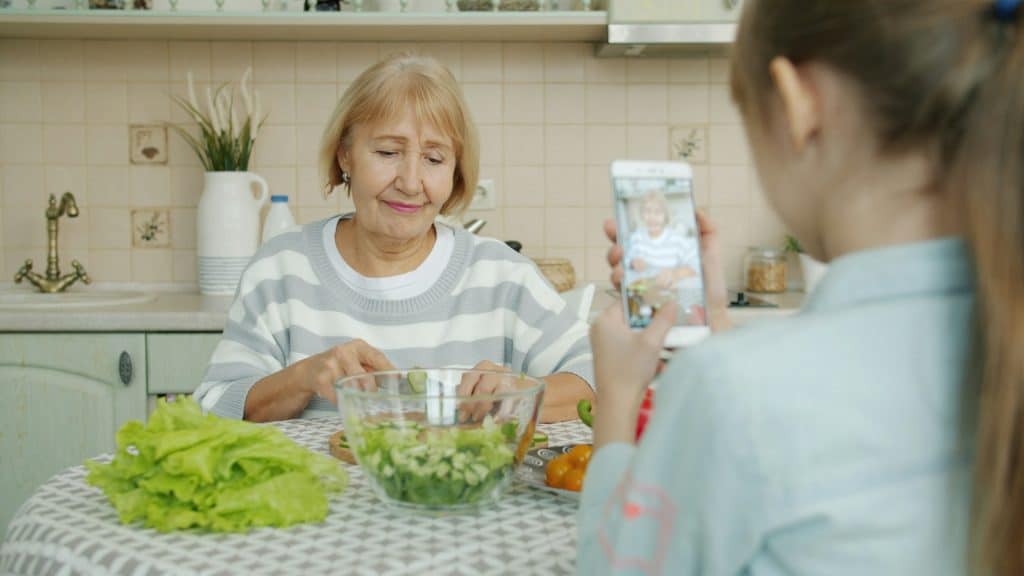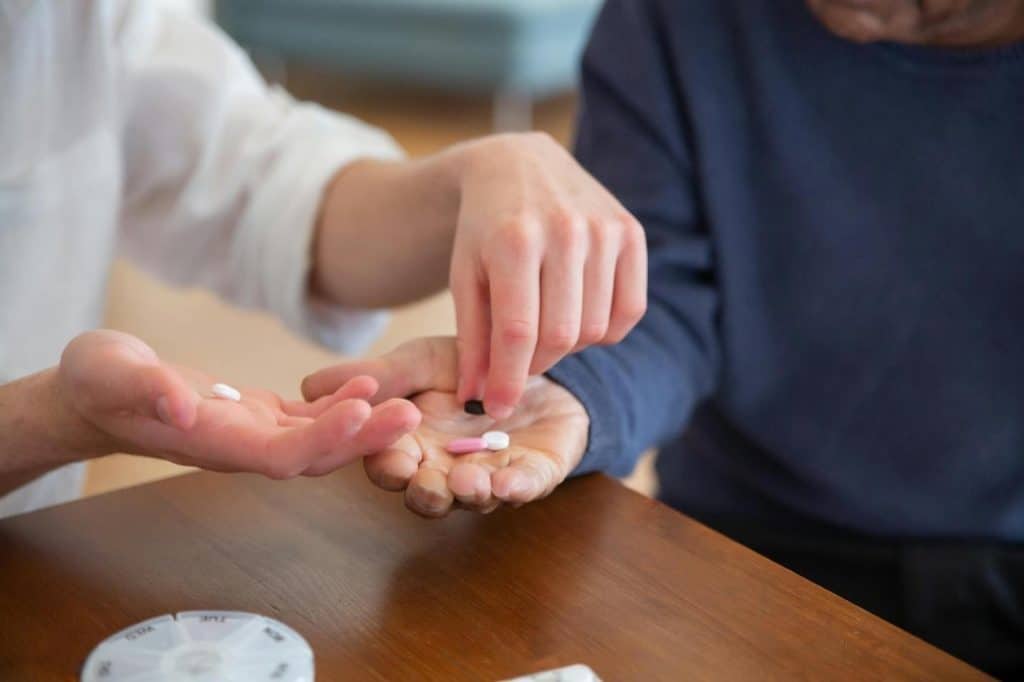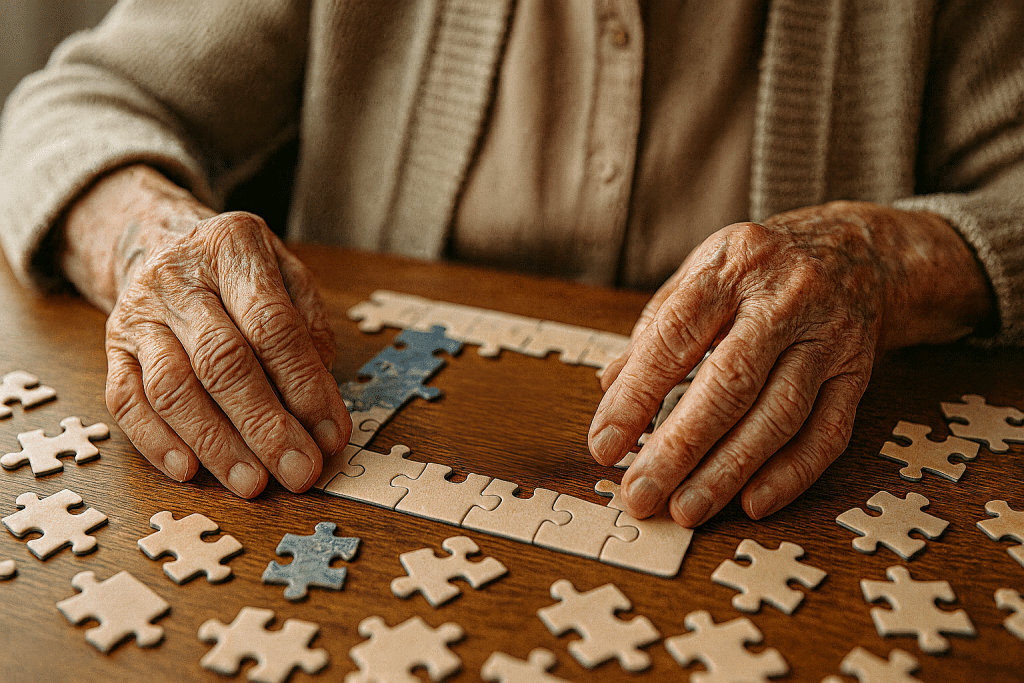What is sarcopenia and how does it affect the elderly?
Sarcopenia is the clinical term for the progressive and generalized loss of muscle mass and strength associated with ageing. Although it is a natural process, it can be aggravated by a sedentary lifestyle, poor nutrition or certain chronic pathologies.
With less muscle mass, the elderly find it more difficult to perform simple tasks such as climbing stairs, getting up from a chair or even walking steadily, increasing the risk of falls and hospitalizations.
Fortunately, treating sarcopenia at home has shown very positive results, especially when it is accompanied by attentive, professional and specialized home support, such as that provided by the Hands Care team.
The right diet to regain muscle mass
Nutrition plays a fundamental role in restoring muscle mass in the elderly.
A balanced diet, rich in proteins of high biological value (such as eggs, fish and lean meat), combined with complex carbohydrates, healthy fats and essential micronutrients, is extremely important for stimulating muscle anabolism.
In addition, the inclusion of a nutritional supplement, always with proper medical and nutritional guidance, can complement the diet and help meet the energy and protein needs of the elderly.
The Hands Care team works with caregivers and qualified health professionals to ensure a balanced diet that promotes muscle mass gain, always respecting each person’s tastes and needs.
Strength exercises that can be done at home
Physical exercise is undoubtedly one of the cornerstones of treating sarcopenia at home. Even in cases of reduced mobility, it is possible to carry out physiotherapy exercises at home adapted to the functional level of each elderly person.
Here are some simple and effective examples of strength exercises that, when integrated into the daily routine, can contribute considerably to the well-being of the elderly:
- Seated leg raise;
- Squats with support;
- Push-ups against the wall;
- Stationary walk with knee lift.
These movements should be supervised by a specialized professional to ensure correct execution and prevent injuries.
The home physiotherapy offered by Hands Care is carefully adapted to each person’s functional profile, promoting consistent and safe progress.
Benefits of home physiotherapy
Home physiotherapy is one of the most effective strategies for restoring muscle function.
By avoiding tiring journeys and working in the comfort and safety of their own homes, the elderly feel more motivated to take part in the sessions.
At Hands Care, physiotherapy plans are individualized and based on practices supported by scientific evidence. Our professionals closely monitor each patient’s progress and adjust the exercises whenever necessary.
In addition, the regularity and continuity of the sessions are easier to maintain with this type of home support, thus contributing to better long-term results.
The role of the caregiver in supporting physical recovery
Recovering muscle mass doesn’t just depend on nutrition and exercise.
The emotional and practical involvement of those who accompany the elderly on a daily basis is fundamental, which is why home caregivers and strength training are inseparable allies.
At Hands Care, the caregivers don’t just assist: they motivate, supervise and ensure the elderly person’s safety during the exercises. They are also responsible for organizing meals, reminding people to take supplements and liaising with physiotherapists whenever necessary.
This close and constant monitoring makes all the difference in achieving and maintaining results.
Home support: safety and training support
A training plan is only effective if it is also safe, which is why home support plays such an important role in the physical recovery process.
The presence of qualified professionals, such as physiotherapists, caregivers and health professionals, allows for constant monitoring of the elderly person’s response to the exercises.
At Hands Care, we ensure that every movement is performed safely, without excess and with attention to any signs of discomfort.
At the same time, the family environment offers peace of mind and emotional comfort, which also encourages motivation to maintain an active routine.
How to integrate health and well-being into the routine of the elderly
Recovering muscle mass is part of a bigger goal, which is to live a quality life. To this end, it is essential to promote a balanced routine that includes physical activity, proper nutrition, rest and socializing.
With home care, it’s possible to create a tailor-made routine that respects the rhythms and preferences of each elderly person.
At Hands Care, we help to structure everyday life in a harmonious way, promoting both physical health and emotional well-being. This approach allows us not only to maintain strength, but also the joy of living at all stages of our patients’ lives.
Final considerations
Recovering muscle mass in the elderly is the first step towards restoring autonomy, health and well-being in old age.
At Hands Care, we combine technical knowledge, experience in the field and a human and empathetic approach, so that each person can age with dignity in the comfort of their own home.
If you’re looking for a reliable home care company, committed to quality care and promoting true well-being, you can count on Hands Care at every stage of this journey.
If you would like to know more about the services we offer, please contact us or schedule a free, no-obligation consultation using our form.



